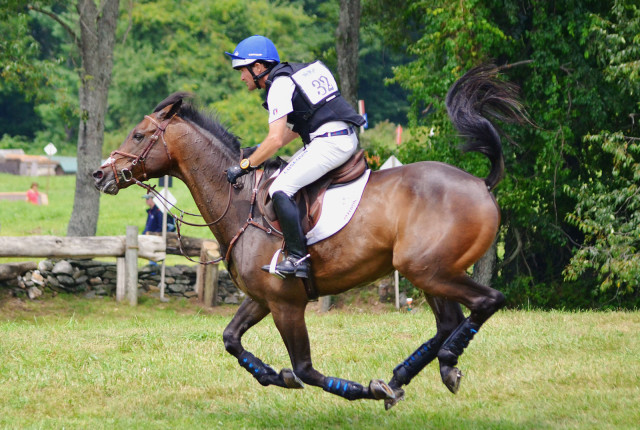Since 2008 the USEA Cardiopulmonary Research Group has studied the equine cardiovascular issues that lead to sudden horse deaths during cross country in eventing, and Dr. Catherine Kohn has kindly summarized the latest findings in the study, which we’ve outlined below.
Why do horses suddenly die on cross country? “Based on a review of the literature on sudden death in human athletes, we concluded that cardiovascular and/or pulmonary (lung) compromise were likely causes of sudden death in exercising horses.”
How do horses suddenly die on cross country? “Horses may develop transient cardiac arrhythmias while on the cross country, and that, in some instances, these arrhythmias may compromise exercise tolerance and could lead to falls, injury or fatalities.”
How does the USEA collect data to track and monitor these arrhythmias? “Studying this hypothesis requires us to have a reliable means of recording exercising ECGs (echocardiograms) in competing horses, during warm up, the cross country and the first 10 minutes of the recovery period. Development of a suitable ‘on board’ monitoring system remains our highest priority.”
Has the USEA collected any data from competing horses so far? “Our most recent study was in August of 2014, at Waredaca Horse Trials, where we were very pleased to record 8 interpretable exercise ECGs. We will continue to test our recording devices during the 2015 competition season.”
What does the USEA do with autopsies from horses that die in competition? “We can learn a great deal from these most unfortunate losses. What was the cause of death? Did a fall occur because of underlying heart or lung disease? These are the sorts of questions that we try to answer.”
The report then summarizes in detail the USEA Cardiopulmonary Research Group’s work to date, which you can read in full at this link. Thank you to the researchers for their hard work; the USEA for their leadership in commissioning this important research; and the owners, trainers, riders, grooms and horses that have participated in the study to date.
[USEA Cardiopulmonary Research Group 2015 Update]



















